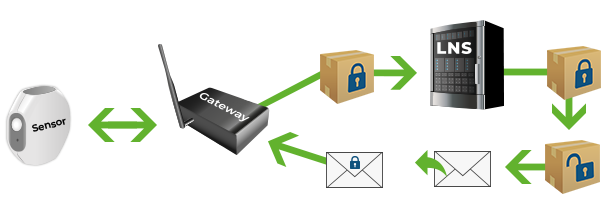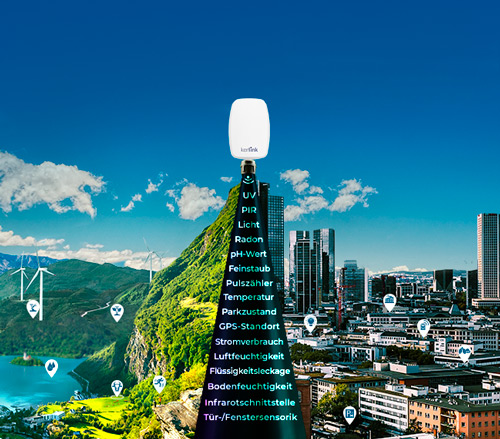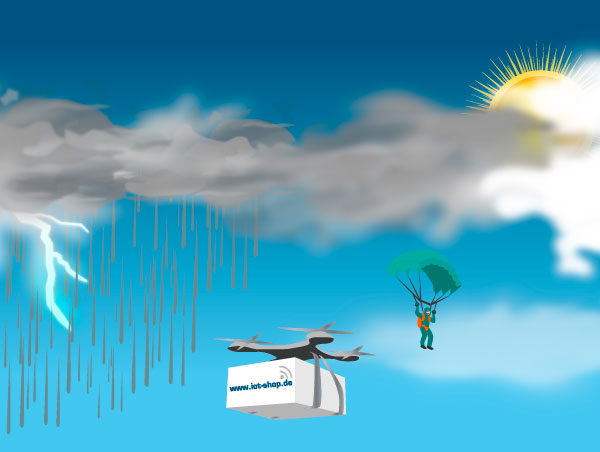What does a LoRaWAN gateway do?
The LoRaWAN gateway receives data via LoRaWAN radio and converts it into digital data. The sensor's digital data is enriched with meta-data, then passed to the LoRaWAN network server via a TCP/IP connection. Similarly, data from the LoRaWAN network server is received and forwarded to the sensors. The TCP/IP connection can be either Ethernet, WLAN or cellular. This connection to the LoRaWAN network server is called backhaul.
The LoRaWAN gateway cannot decrypt the data because no key information is available in the gateway. It cannot determine whether the LoRaWAN device is known on the network server to which it is sending and does not receive any feedback about this. This is deliberately designed so that even someone who has physical access to the gateway and may even be able to log in, has no way of looking into the communication between server and sensor.
Sounds simple, is there anything to consider when operating a gateway on the LoRaWAN network?
Quite a lot, in fact. Although the gateway's tasks are quite simple, many of them are also time-critical. At Join and if the LNS wants to send a downlink message to the sensor, the sensor is only on reception for a certain time. During this time the following things must happen:

- The package must go to the LNS
- The LNS must decrypt the packet
- The LNS must create a response
- Encode the answer
- Transfer to the gateway
- The gateway must send the response
In addition to speed, the gateway's software must also be suitably robust to safely intercept disconnections and unforeseen conditions and bring the gateway back on line.
In addition, LoRaWAN gateways are of course physical devices in the real world that are often exposed to wind and weather, even outdoors. Corresponding housings must therefore be appropriately protected against water and dust and be able to guarantee hardware operation at both - 20 and + 40 °C. LoRaWAN gateways work better the higher they are mounted, but if such a gateway is the highest point of a building, lightning protection on the antenna must not be missing.

Phew, that's pretty complicated.
Don't worry, all LoRaWAN gateways in our product range have appropriate firmware that takes care of the network management, the forwarding of the LoRaWAN packets is done by the packet forwarder. You have the choice between SPF/CPF and Basic Station. So you don't have to develop any software for the gateway.
And which LoRaWAN gateway should I buy now?
This depends on you and your use case, let's introduce a few devices:
The Things Indoor Gateway
Applications:
First tests with LoRaWAN devices in own home / office with TTN / TTI
Very Compact Low Configuration Effort
Wifi only for backhaul Only usable for TTN / TTI Low Signal Range
Wifx L1 Gateway with Antenna
Application:
LoRaWAN installations on factory sites and depots where more range is needed
All In One Package Good Webinterface Compact Size
Ethernet only as backhaul
Kerlink iFemtoCell and iStation
Application:
Professional rollout of devices for a large LoRaWAN network
4G Modem Very stable software Extensive certifications
Configuration is very complex No web interface
Are there more gateways?
Yes, you will find a wide selection, which is constantly expanding, in our Shop . Your desired product is not included? Then ask us! Through our large network, we have access to other products and can also procure unlisted products for you.










